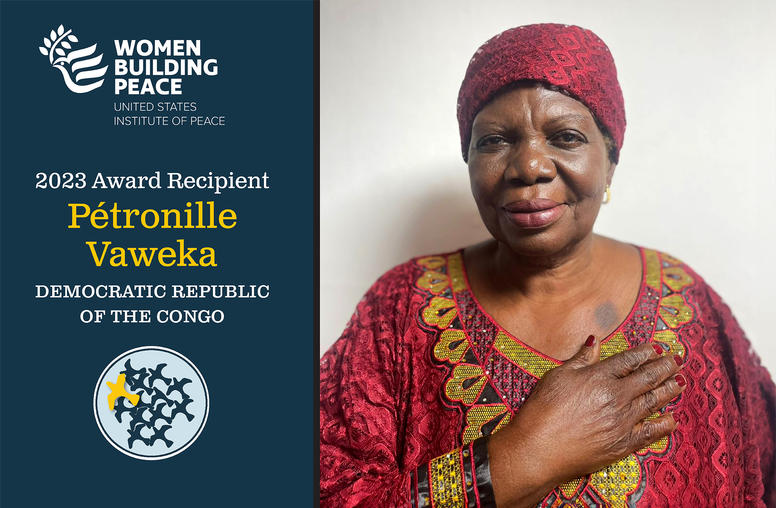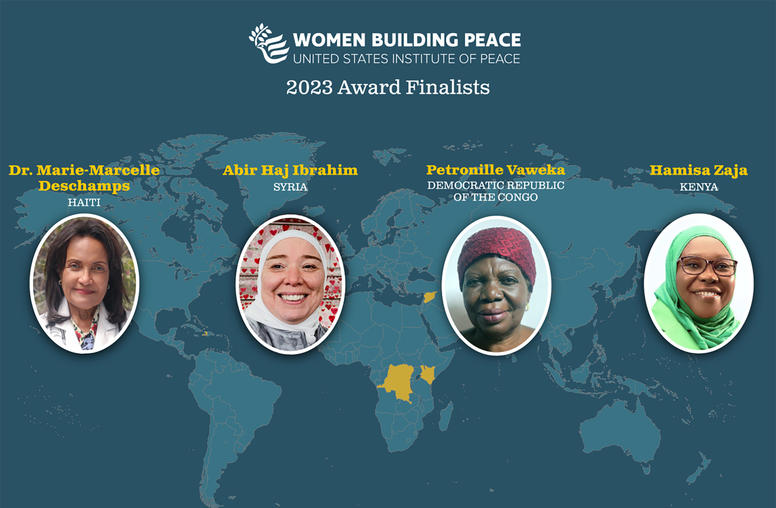Anti-Corruption Provisions are Key for Making Peace Agreements Sustainable
For Immediate Release
Contact: Meg Pierannunzi, 202-429-4736
Allison Sturma, 202-429-4725
 (Washington) – In a new study, “Negotiating Peace and Confronting Corruption” from the United States Institute of Peace, author Bertram I. Spector argues that peace and economic recovery in countries emerging from violent conflict are more likely and more durable when good governance reforms and corruption controls are included in negotiations ending the conflict.
(Washington) – In a new study, “Negotiating Peace and Confronting Corruption” from the United States Institute of Peace, author Bertram I. Spector argues that peace and economic recovery in countries emerging from violent conflict are more likely and more durable when good governance reforms and corruption controls are included in negotiations ending the conflict.
Spector examines the negotiated peace process in six cases—El Salvador, Guatemala, Sierra Leone, Burundi, Papua New Guinea and Liberia—specifically looking at how and in what form integrity provisions were negotiated into the agreements. In each case, he identifies lessons learned, where the peace agreements and implementations left gaps, and where new solutions are still needed. Spector analyzes the six cases against a control group of seven countries recently emerged from conflict where anticorruption and good governance provisions were not explicitly elaborated in peace treaties. Comparing the two groups on indicators of official development assistance, corruption control, political stability, and economic growth, he finds that postconflict countries where reestablishing integrity was high on the agenda fared better than those in the control group.
But negotiating a good forward-looking agreement cannot by itself guarantee peace with corruption kept in check; how the agreement is implemented is just as crucial. To effectively implement an agreement, the parties to it—as well as interested bilateral donors and international organizations—must support integrity provisions and safeguards through technical and financial assistance.
Spector also contends that postagreement negotiations are essential to extend, revise, and refine the original peace treaty during implementation in response to the postconflict country’s fluid political and economic environments. Postagreement negotiations bring former combatants together in a continuing forum to solve the country’s problems and learn more about the other side’s interests and needs. Most importantly, they reconstitute a critical element of any well-functioning democratic government: the participation of interested parties in developing decisions and future policy through peaceful dialogue and compromise.
“The prospect for a long-term stable resolution of violent conflict often emerges from a complex multistage process. Peace agreements are achieved principally through negotiations, but it takes intricate postagreement efforts to ensure that the commitments the parties made in negotiation are realized,” states Spector. “How an agreement is implemented—with what speed, with what resources, and with what political will by all parties—will directly affect the success of conflict resolution.”
Based on this multi-staged analysis, Spector offers practical suggestions and guidance for both negotiators and the implementers of their agreements.

